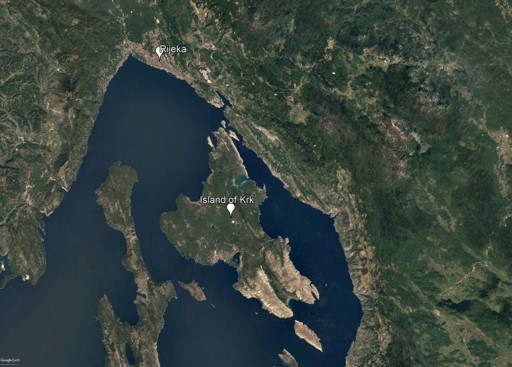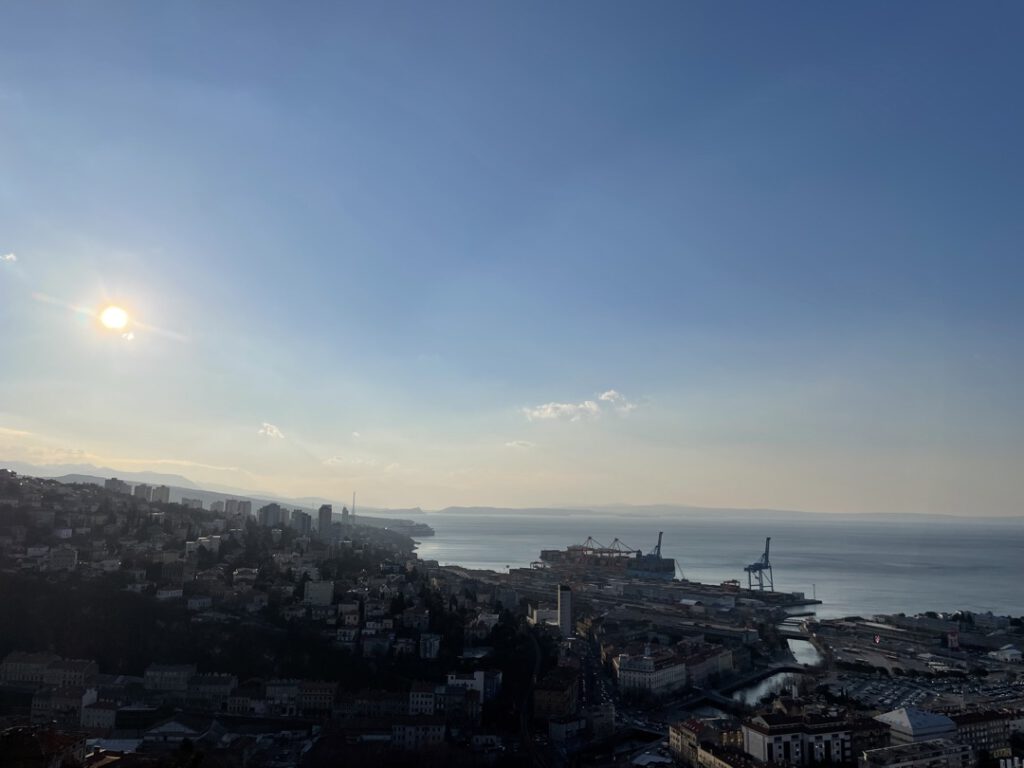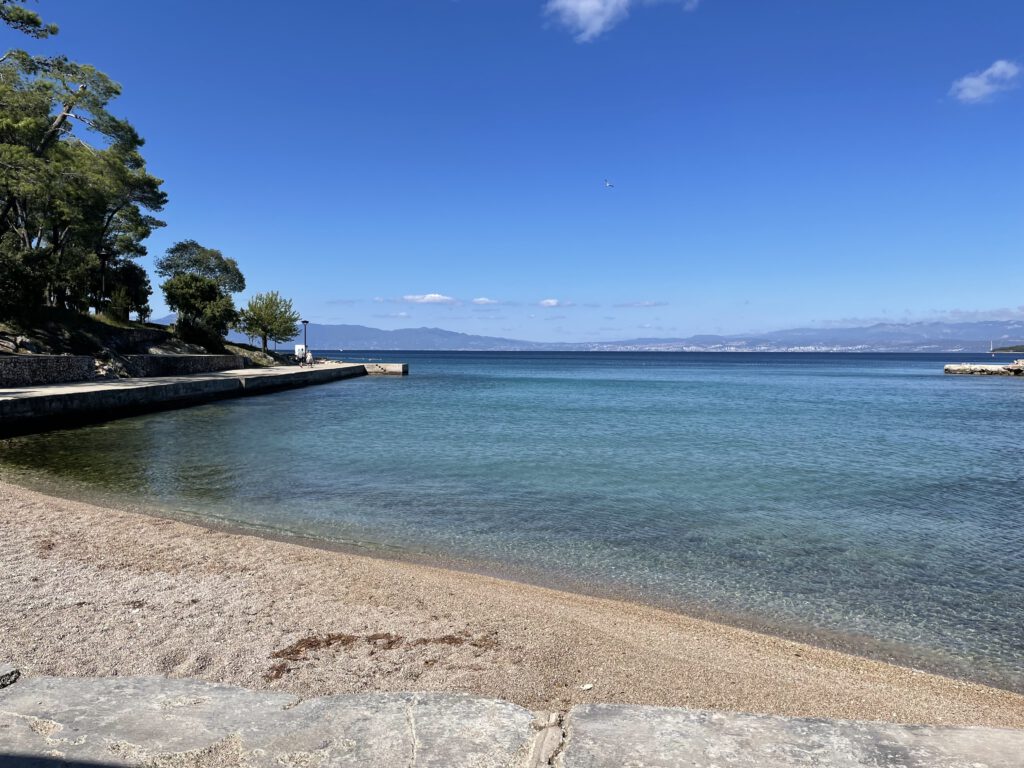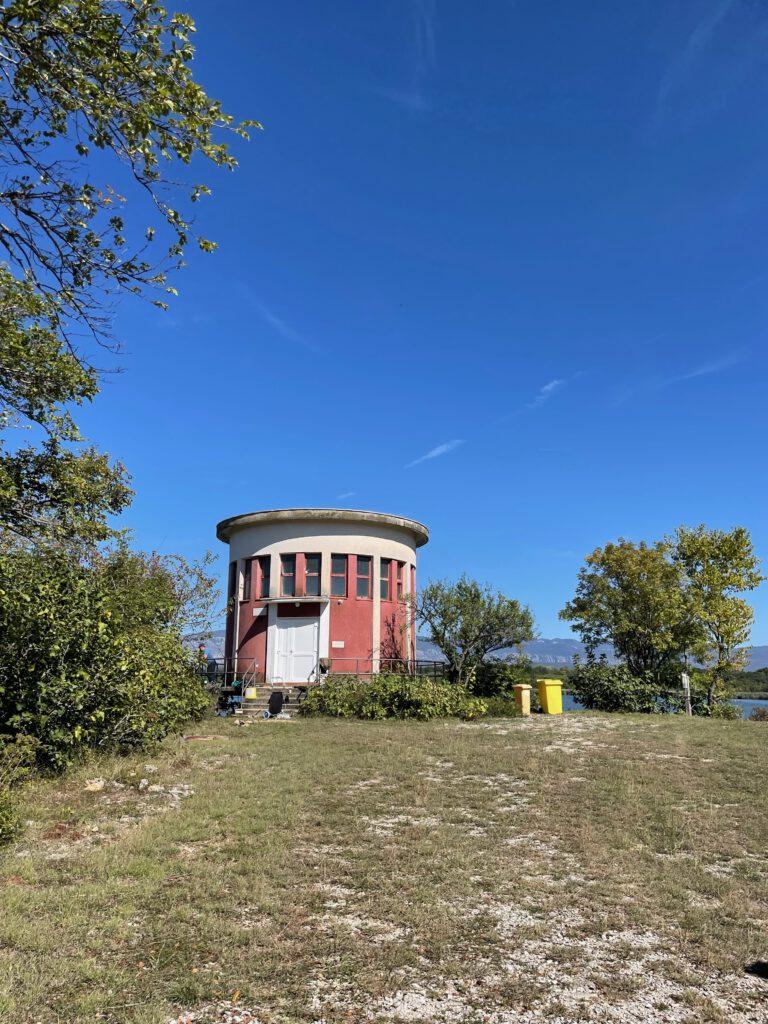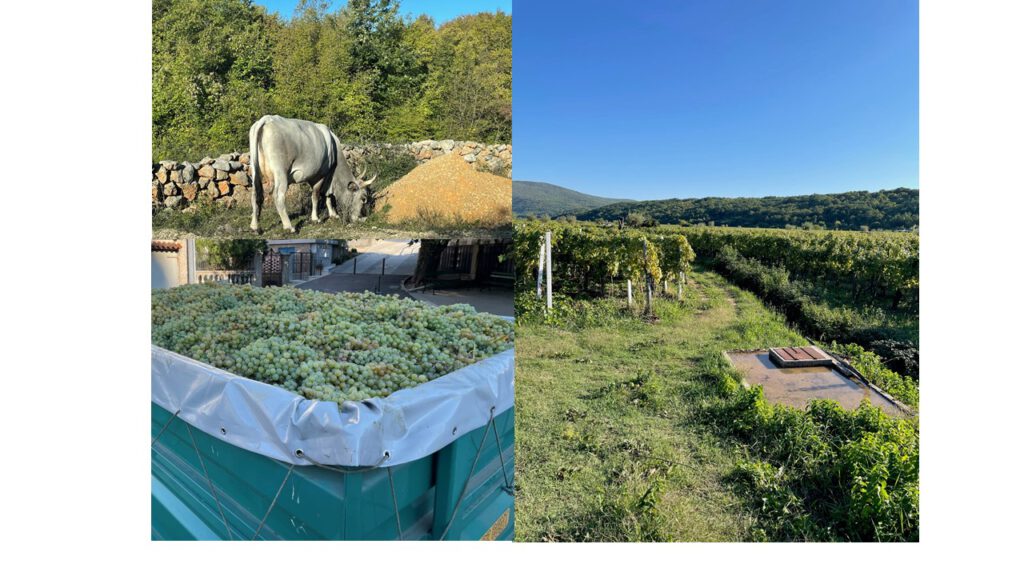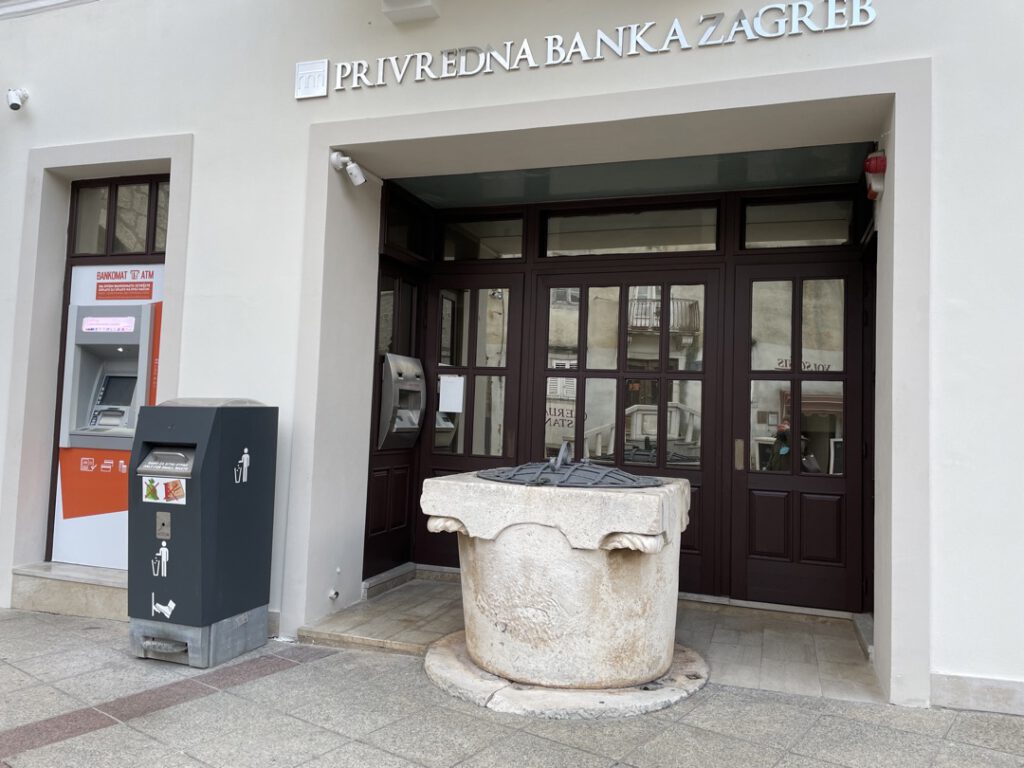City of Rijeka & Island of Krk, Croatia
Background
In this case study, we aim to explore dynamics of two sites that are hydraulically connected by an inter-basin water transfer scheme during the tourist season: the coastal city of Rijeka and the island of Krk at the Northern Adriatic coast in Croatia. Rijeka is Croatia’s third largest city and hosts its largest deep-water port. The city and surrounding area are rich in water resources, characterised by a Mediterranean, semi-arid climate and a complex hydrogeological structure of karst aquifers (Bonacci et al., 2013). In 2020, during the first Croatian EU presidency, Rijeka was proclaimed the European Capital of Culture and was being described as a ‘liquid city’, addressing water as one main cluster theme. The cultural importance of water is tied to ideas of modernity, diversity and development. Moreover, the various sources of drinking water surrounding the city and its river are deeply entangled in the historical, cultural and social identities of the city of Rijeka – which literally means “river” in the local language. As it is the case for the entire Adriatic coast, tourism is one of the main socio-economic pillars of Rijeka and the island of Krk as the biggest, most northern Croatian island. Therefore, groundwater use periodically spikes dramatically along the coast line. Furthermore, irrigation and livestock farming practices as well as the effects of climate change put additional pressures on the groundwater resource. In an attempt to mitigate over-extraction of groundwater during tourist season, the island’s northern half is connected to Rijeka’s water supply in summer months (Slavuj et al., 2009).
Objective
By choosing an interdisciplinary approach to study these dynamics of groundwater use and management between the city of Rijeka and the island of Krk, it is our aim to address local practices of groundwater use and management considering water supply, agriculture and livestock farming, wastewater treatment and inter-basin water transfer schemes through various methods and different disciplinary conceptualisations.
The interdisciplinary research questions that form the basis for our research activities in Rijeka and on Krk are as follow:
- In what ways does knowledge and information play a role in decision-making in groundwater management, provision and use?
- How does this relate to local land use practices, (EU) policy implementation processes and uncertainty in water availability considering ecological, geographical, climatic and economic factors?
Combining different quantitative and qualitative methods, we will discuss these questions together with local actors in stakeholder workshops.
Our overall aim is to identify shared and differing understandings and approaches to how groundwater is understood, quantified and communicated. Overall, this case study will contribute to give insights into how Mediterranean coasts are predicted to be affected by climate change, as well as into how inter-basin water transfer infrastructure is managed, maintained, and one potential adaptation strategy. Furthermore, it aims to identify how EU policies are adopted as Croatia is its most recent member state.
Research
Telecoupling
- Contribute insights into the telecoupling framework by considering tourism, remote water transfer (physical water) and policy implementation (information) as certain types of flows
Quantity (Socio-hydrology)
- How do water demand and availability in Rijeka and on Krk change under different climate change scenarios, as well as consumption patterns?
- What strategies could ensure sustainable groundwater management and use in the future?
- How do local stakeholders cope with uncertainties regarding groundwater management?
- How do these uncertainties influence decision-making processes?
Institutions (Cultural Anthropology/European Ethnology)
- How do local, cultural, political and administrative conceptions of the resource affect practices of groundwater use and management in Rijeka and on Krk?
- How do local, regional, national and European levels interact in the implementation of the EU Water Framework Directive?
- How do relevant stakeholders interact in groundwater management and how do they envision sustainable groundwater management in the region?

